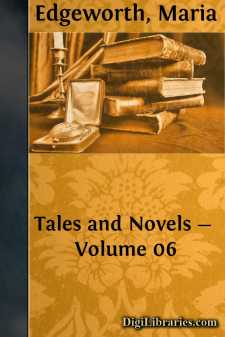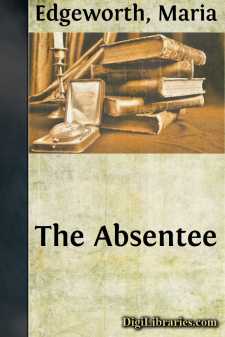Categories
- Antiques & Collectibles 13
- Architecture 36
- Art 48
- Bibles 22
- Biography & Autobiography 813
- Body, Mind & Spirit 142
- Business & Economics 28
- Children's Books 17
- Children's Fiction 14
- Computers 4
- Cooking 94
- Crafts & Hobbies 4
- Drama 346
- Education 46
- Family & Relationships 57
- Fiction 11829
- Games 19
- Gardening 17
- Health & Fitness 34
- History 1377
- House & Home 1
- Humor 147
- Juvenile Fiction 1873
- Juvenile Nonfiction 202
- Language Arts & Disciplines 88
- Law 16
- Literary Collections 686
- Literary Criticism 179
- Mathematics 13
- Medical 41
- Music 40
- Nature 179
- Non-Classifiable 1768
- Performing Arts 7
- Periodicals 1453
- Philosophy 64
- Photography 2
- Poetry 896
- Political Science 203
- Psychology 42
- Reference 154
- Religion 513
- Science 126
- Self-Help 84
- Social Science 81
- Sports & Recreation 34
- Study Aids 3
- Technology & Engineering 59
- Transportation 23
- Travel 463
- True Crime 29
Tales and Novels - Volume 05
by: Maria Edgeworth
Description:
Excerpt
CHAPTER I.
"And gave her words, where oily Flatt'ry lays
The pleasing colours of the art of praise."—PARNELL.
NOTE FROM MRS. BEAUMONT TO MISS WALSINGHAM.
"I am more grieved than I can express, my dearest Miss Walsingham, by a cruel contre-temps, which must prevent my indulging myself in the long-promised and long-expected pleasure of being at your fête de famille on Tuesday, to celebrate your dear father's birthday. I trust, however, to your conciliating goodness, my kind young friend, to represent my distress properly to Mr. Walsingham. Make him sensible, I conjure you, that my heart is with you all, and assure him that this is no common apology. Indeed, I never employ such artifices with my friends: to them, and to you in particular, my dear, I always speak with perfect frankness and candour. Amelia, with whom, entre nous, you are more a favourite than ever, is so much vexed and mortified by this disappointment, that I see I shall not be restored to favour till I can fix a day for going to you: yet when that may be, circumstances, which I should not feel myself quite justified in mentioning, will not permit me to decide.
"Kindest regards and affectionate remembrances to all your dear circle.—Any news of the young captain? Any hopes of his return from sea?
"Ever with perfect truth, my dearest Miss Walsingham's sincere friend,
"EUGENIA BEAUMONT.
"P.S.—Private—read to yourself.
"To be candid with you, my dear young friend, my secret reason for denying myself the pleasure of Tuesday's fête is, that I have just heard that there is a shocking chicken-pox in the village near you; and I confess it is one of my weaknesses to dread even the bare rumour of such a thing, on account of my Amelia: but I should not wish to have this mentioned in your house, because you must be sensible your father would think it an idle womanish fear; and you know how anxious I am for his esteem.
"Burn this, I beseech you——
"Upon second thoughts, I believe it will be best to tell the truth, and the whole truth, to your father, if you should see that nothing else will do——In short, I write in haste, and must trust now, as ever, entirely to your discretion."
"Well, my dear," said Mr. Walsingham to his daughter, as the young lady sat at the breakfast table looking over this note, "how long do you mean to sit the picture of The Delicate Embarrassment? To relieve you as far as in me lies, let me assure you that I shall not ask to see this note of Mrs. Beaumont's, which as usual seems to contain some mighty mystery."
"No great mystery; only——"
"Only—some minikin mystery?" said Mr. Walsingham. "Yes, 'Elle est politique pour des choux et des raves.'—This charming widow Beaumont is manoeuvrer.[1] We can't well make an English word of it. The species, thank Heaven! is not so numerous yet in England as to require a generic name. The description, however, has been touched by one of our poets:
'Julia's a manager: she's born for rule,
And knows her wiser husband is a fool....












